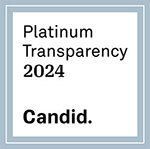Call us today to receive a child care referral.
Call (310) 452-3325 to receive a child care referral.
Every parent – no matter their income level or other circumstances – is welcome at Connections for Children. When parents contact us, they are provided with information and referrals for licensed child care options within our service area. We empower partners with knowledge so they can choose child care that best meets their family’s needs and values.
Our child care specialists are committed to connecting families with information and referrals to support optimal child and family development. We offer a wealth of free resources on child development, parenting, and quality child care such as:
- Child care referrals
- Searching for Child Care Checklist
- Financial assistance
- Education about child development
- Community resources
- Resources for children with special needs
Child Care Referral Policy
Connections for Children believes that parents are best able to evaluate and select the right child care for their children. We do not recommend any specific provider; we only provide the parent with a list of providers randomly selected from our computerized referral database. Parents are urged to visit any child care facility they may be considering, complete our child care checklist and make their decision carefully.
We serve providers and parents in our area on a non-discriminatory basis, regardless of income, race, religion, national origin, sex, age, or disability. All information received is kept confidential. Please also see our Privacy Policy.
NOTE: CALIFORNIA state law requires a licensed child care facility to make accessible to the public a copy of any licensing report facility that documents a facility visit or a substantiated complaint investigation. In addition, a more complete file regarding a child care licensee may be available at an office of the State Department of Social Services Community Care Licensing Division. You have the right to access any public information in these files. To find out if a program has had any complaints or license violations, call the Department of Social Services Community Care Licensing at (424) 301-3077
Disclaimer: Connections for Children is not a child care provider and does not recommend child care providers. The names of child care providers provided to parents in a referral list should be considered referrals only; not recommendations. Connections for Children does not warrant accuracy of provider information, nor can we assure the quality of any child care provider referred in this process.
In addition, this information is available for personal and non-commercial use only. Connections for Children does not permit any replication of this information for commercial or statistical use, unauthorized attempts to do so on this service are strictly prohibited and may be punishable under the Computer Fraud and Abuse Act of 1986. The above terms apply to each search performed. By doing a child care referral search, you agree that you have read and accept the above disclaimer for this and all future searches.



